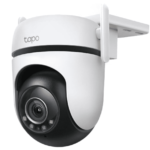
How to prepare for a behavioral interview?
Are you searching now on how to ace behavioral questions in an interview because you are preparing for the upcoming in-person or online job interview? No worries, I am here to guide you with tips to help you.
Behavioral or situational questions are the most common questions in an interview. The interviewer would let you describe a specific situation or example from your experience that shows your skills or abilities for the job. For instance, they might ask you to tell them when you solved a problem, handled a conflict, led a team, or achieved a goal. These questions assess how you think, act, and react in different scenarios and situations.
Behavioral or situational questions can be challenging and intimidating, especially if you need more preparation and confidence. However, they can also be opportunities to showcase your strengths and potential for the job. Below are some tips that I can share with you from being an HR Officer to help you ace behavioral or situational questions in an interview.
Understand the purpose of the question.
Before you answer any behavioral or situational question, try to understand the purpose of the question and what the interviewer is looking for. Usually, the interviewer is trying to evaluate one or more of the following aspects of your;

- Skills and abilities. How well do you perform tasks or functions relevant to the job? For example, your communication, teaching, language skills, etc.
- Behaviors and attitudes. Also, how do you approach and handle different situations and challenges that might arise on the job? For instance, your initiative, creativity, adaptability, teamwork, etc.
- Values and fit. How do you align with the company’s mission, vision, values, goals, and culture? For example, your passion, motivation, integrity, ethics, etc.
To understand the purpose of the question, pay attention to the keywords or phrases that indicate what the interviewer is looking for. Check the examples below;
- Tell me about a time when you demonstrated your teaching skills.
- How did you handle a challenging student or a parent complaint?
- Describe a situation where you showed creativity and initiative in designing a lesson plan or an activity.
- What did you do when you faced a challenge or a failure in your teaching career?
- How do you adapt to different cultures or learning styles?
By understanding the purpose of the question, you can focus your answer on the relevant aspects and provide the best example that matches the interviewer’s expectations.
Organize your answer using the STAR method.
Another way to answer behavioral or situational questions is to use the STAR framework.
- Situation. Describe the situation or context of the example. Where and when did it happen? Who was involved? What was the challenge or problem?
- Task. Describe the task or goal that you had to accomplish or achieve. What was your role and responsibility? What did you want to do or change?
- Action. Describe the action you took to complete the task or solve the problem. What did you do and why? How did you use your skills or abilities?
- Result. Describe the result or outcome of your action. What did you achieve or accomplish? How did you measure your success? What did you learn or improve?
Using the STAR method will help you provide specific and relevant examples that showcase your strengths and potential for the job.
Choose an appropriate example.
When choosing an example to answer a behavioral or situational question, check if it is appropriate and relevant for the job and the company. Below are some criteria to consider when choosing an example:
- Recent example and relevant. Ideally, choose one that happened within the last two years related to the job or the industry you are applying for. Avoid using too old, too personal, or too irrelevant examples.
- It’s a positive example and impressive. Share a situation that showcases your skills, abilities, and achievements positively and impressively. Avoid using examples that show your weaknesses, mistakes, or failures unless you can show how you learned or improved from them.
- Specific examples and details. Pick the one that provides enough information to illustrate your situation, task, action, and results clearly and convincingly. Avoid using too vague, general, or hypothetical examples.
- Give an honest example and a realistic one. Keep away from using exaggerated, fabricated, or borrowed ones from others.
Practice and prepare
One of the most effective ways to ace behavioral or situational questions in an interview is to practice and prepare in advance. Some steps to help you practice and prepare are as follows;

- First, review the job description and requirements and identify the skills, abilities, and behaviors that are important and relevant to the job.
- Secondly, check your resume and portfolio and identify the examples that demonstrate your skills, abilities, and achievements in the best way.
- Thirdly, use the STAR method to structure your answers and write them down or record them.
- Next, review your answers and check if they are appropriate, relevant, positive, impressive, specific, detailed, honest, and realistic.
- Then, ask a friend or a family member to mock interview you and give you feedback on your answers.
- Also, revise and improve your answers based on the feedback.
- Lastly, repeat the process until you are confident and comfortable with your answers.
Examples
Check for the examples below that I provided, assuming you are an English teacher applying for an English teaching job in Japan.
- Understand the purpose of the question. For example, if the interviewer asks you questions like;
- How do you motivate your students to learn English?
- Tell me about a time when you collaborated with other teachers on a project or a curriculum.
- How do you incorporate Japanese culture into your teaching?
With these kinds of questions, bear in mind that the interviewer is trying to evaluate your;
- Teaching skills. How well do you plan, deliver, and assess your lessons? In addition, how do you engage, inspire, and support your students?
- Teamwork skills. Also, how well do you communicate, cooperate, and coordinate with other teachers? How do you share, learn, and improve from each other?
- Cultural awareness. How well do you understand, respect, and appreciate Japanese culture? Similarly, how do you integrate it into your teaching?
2. The STAR method can help you to provide a clear, concise, and relevant answer to behavioral or situational questions. Another example is if the interviewer asks you these questions: Tell me when you demonstrated creativity and initiative in designing a lesson plan or an activity.
In this case, use the STAR method to answer like this:
- Situation. Last year, I was teaching a group of elementary students learning English for the first time. They were timid and reluctant to speak or participate in class. I wanted to create a lesson that would encourage them to practice their speaking skills and have fun at the same time.
- Task. My task was to design a creative and interactive lesson plan to motivate the students to speak English and enjoy learning.
- Action. I used a puppet show as the main activity for the lesson. Thus, I prepared puppets, props, and scripts related to the animal topic. I also divided the class into small groups and gave each group those props. Furthermore, I explained the rules and objectives and gave them time to practice their roles. Then, I asked each group to perform their puppet show for the class.
- Result. The result was very positive and successful. The students were very excited and engaged in the activity. They used their creativity and imagination to make their puppet shows fun. Moreover, they used their speaking skills to express themselves and communicate with their peers. I was so glad because they learned new vocabulary and grammar related to animals and worked together as a team. The activity was a great way to boost their confidence and enthusiasm for learning English.

3. Choose an appropriate example. To illustrate the concept more, assume that the interviewer asks you: How did you handle a challenging student or a parent complaint? Well, you can choose an appropriate example like this:
Last semester, I had a student who was very disruptive and disrespectful in class. He would talk back, interrupt, distract other students, and refuse to do his work. Also, he needed better grades and attendance. Sadly, his parents complained that I was not doing enough to help him improve his academic performance and behavior.
As you see, this example is appropriate because it is:
- Recent. The example has happened within the last year.
- Relevant. Also, it is related to the job of an English teacher.
- Positive. In addition, it shows how you overcame a challenge and achieved a positive outcome.
- Impressive. Moreover, it shows how you used your skills and abilities to handle a difficult situation.
- Specific. It also provides enough details and information to illustrate your situation, task, action, and result clearly and convincingly.
- Honest. Can you say it is real? Well, it is because it reflects your experience and performance.
4. Practice and prepare. Moreover, if you want to practice and prepare for a behavioral or situational question, you can follow these steps:
- First, review the job description and requirements and identify the skills, abilities, and behaviors that are important and relevant to the job. For instance, as an English teacher in Japan, you might need skills such as communication, teaching, language, creativity, initiative, teamwork, adaptability, and cultural awareness.
- Second, check your resume and portfolio and identify the examples that demonstrate your skills, abilities, and achievements in the best way. For example, you might have situations from your previous teaching jobs, volunteer work, education, or personal projects that show how you used your skills and abilities in different situations and scenarios.
- Third, use the STAR method to structure your answers and write them down or record them. You can use the template below to write or record your answers:
- Situation. Describe the situation or context of the example. Where and when did it happen? Who was involved? What was the challenge or problem?
- Task. Outline the task or goal to accomplish or achieve. What was your role and responsibility? What did you want to do or change?
- Action. Show how you solve the problem. What did you do and why? How did you use your skills or abilities?
- Result. Recount the result or outcome of your action. What did you achieve or accomplish? How did you measure your success? What did you learn or improve?
4. Fourth, review your answers and check if they are appropriate, relevant, positive, impressive, specific, detailed, honest, and realistic. For example, you can use the checklist below to evaluate your answers:
- Is my example recent and relevant for the job and the industry I am applying for?
- Also, is it positive and impressive for the interviewer?
- Is my example specific and detailed enough to illustrate my situation, task, action, and result clearly and convincingly?
- In addition, is my example honest and realistic for my experience and performance?
5. Next, let a friend or a family member mock interview you and give you feedback on your answers. Ask them to act as the interviewer and ask you some behavioral or situational questions related to the job and the company you are applying for. You can also let them give you feedback on your answers based on the criteria above.
6. Then, revise and improve your answers based on the feedback. Change your answers based on suggestions or comments from your friend or family member. Moreover, add more details or examples to make your answers clear or more convincing.
7. Finally, repeat the process until you are confident and comfortable with your answers.
Thus, behavioral or situational questions are a common and essential part of any interview. They can help the interviewer assess your skills, abilities, behaviors, values, and fit for the job and the company. Also, they can help you showcase your strengths and potential for the job. With these tips, I hope you can ace behavioral or situational questions in an interview and make a great impression on the interviewer.
If you have any questions or comments, feel free to leave them below. Thanks for reading, and I’ll see you at the next one.



